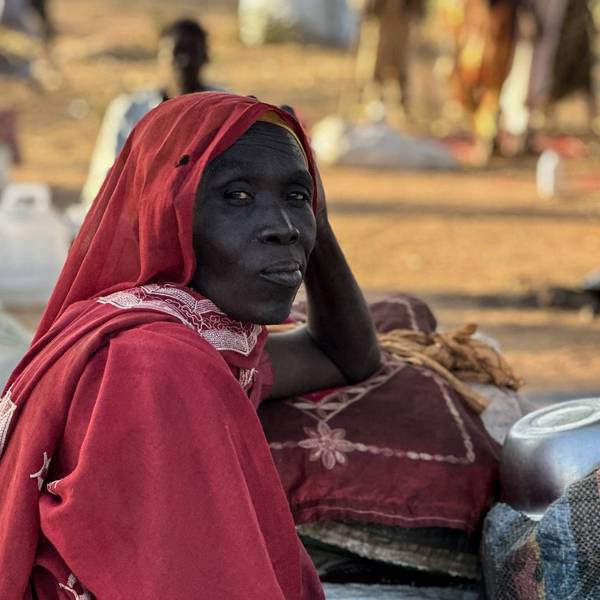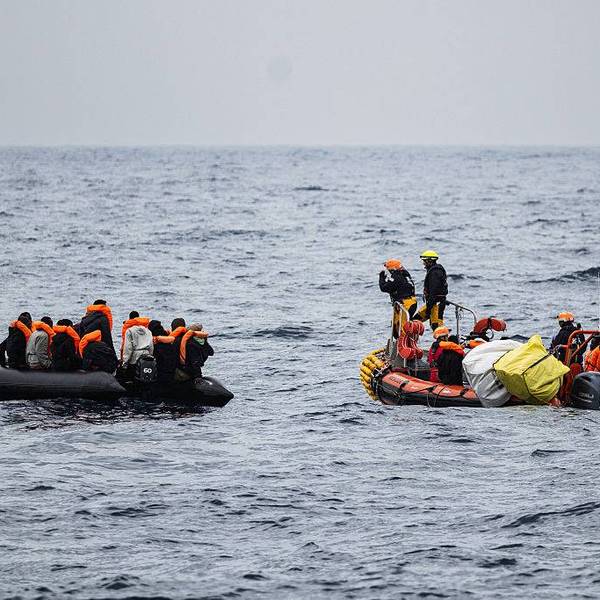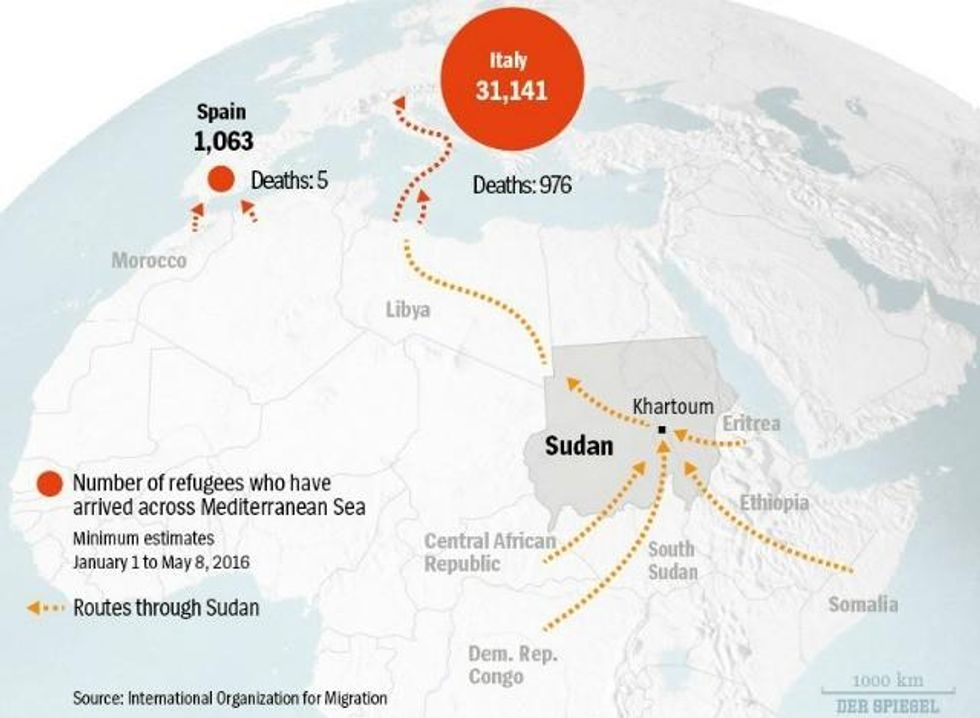Explosive classified documents obtained by German reporters show that the EU is working out a plan to fund the construction of detention centers and provide refugee processing equipment to various African countries, including Sudan, in an effort to stem the flow of migrants from Africa to Europe.
Sudan is run by Omar al-Bashir, an internationally wanted war criminal behind the genocide in the Darfur region that has displaced 2.6 million around the world.
"A regime that destabilized the region and drove hundreds of thousands of people to flee is now supposed to stem the refugee problem for the EU."
--Marina Peter, Bread for the World
Sudanese officials assured Germany that migrants who are put in the proposed detention centers will be forced to stay there: "The goal is that the refugees won't leave the new camps," the Sudanese officials said, according to Buzzfeed. The Sudanese government also expressed interest in using the EU-provided equipment to surveil its own citizens.
Der Spiegel reported on the details of the project, kept top secret because "under no circumstances" did the officials want the public to learn what was being discussed by the 28 EU member states in Brussels on March 23rd:
Under the heading "TOP 37: Country fiches," the leading diplomats that day discussed a plan that the EU member states had agreed to: They would work together with dictatorships around the Horn of Africa in order to stop the refugee flows to Europe--under Germany's leadership.
When it comes to taking action to counter the root causes of flight in the region, German Chancellor Angela Merkel has said, "I strongly believe that we must improve peoples' living conditions." The EU's new action plan for the Horn of Africa provides the first concrete outlines: For three years, 40 million ($45 million) is to be paid out to eight African countries from the Emergency Trust Fund, including Sudan.
Minutes from the March 23 meetings and additional classified documents obtained by Der Spiegel and the German public television station ARD show "Report Mainz" show that the focus of the project is border protection. To that end, equipment is to be provided to the countries in question.
"The German Ministry for Economic Cooperation and Development has confirmed that action plan is binding," adds Der Spiegel, "although no concrete decisions have yet been made regarding its implementation."
The magazine also notes that the German government has arranged for the plan to be coordinated by Germany's development arm, GIZ. "When it comes to questions of finance, the organization has become a vehicle the government can use to be less transparent," a German government official told Der Spiegel.
It seems obvious why the EU would be so interested in keeping the project under wraps: al-Bashir has been indicted by the International Criminal Court (ICC) for every single crime under its mandate--war crimes, crimes against humanity, and genocide. The ICC has issued several warrants for his arrest.
Sudan was chosen by EU officials presumably because it is a bottleneck for migrants fleeing conflicts in Eritrea, Somalia, the Democratic Republic of the Congo, and the Central African Republic. Asylum seekers from those countries must traverse Sudan to reach the lawless nation of Libya, from which they attempt the dangerous sea journey to Europe. (Thousands of refugees risking that journey have been rescued from sinking boats by the Italian coast guard this week alone.)
"The EU has tried to push back" against international criticism of the arrangement since it was made public, wrote IRIN, "pointing out that funding will not be channeled through the government, and project partners will be large European international NGOs. It will also pursue a 'rights-based approach,' according to an EU spokesperson."
But the plan is controversial internally among EU officials, Der Spiegel notes: "The 'risks' listed in the action plan includes the fact that equipment financed by the Emergency Trust Fund could be abused by repressive regimes and used in the oppression of the civilian population. A general with Sudan's Interior Ministry told Der Spiegel and ARD that technology would not just be used to register refugees, but also all Sudanese."
"The regime's goal appears to be the absolute surveillance of its people," Der Spiegel observes.
The al-Bashir government has already ruled through brutal oppression. International humanitarian group Human Rights Watch recently detailed the al-Bashir regime's widespread use of sexual violence against women in the country, and earlier this month issued an open letter to the African Commission on Human and People's Rights describing the government's violent efforts to quash peaceful protests.
"A regime that destabilized the region and drove hundreds of thousands of people to flee is now supposed to stem the refugee problem for the EU," as Marina Peter, an expert on the Horn of Africa region at the German relief organization Bread for the World, pointed out to Der Spiegel.
In fact, it seems that part of the EU's motivation for choosing Sudan could be to return Sudanese refugees to the regime they fled: Buzzfeed reports that Ibrahim Ghandour, Sudan's foreign minister, told ARD, "The [EU] Migration Commissioner in Brussels asked me, 'We have 12,000 illegal migrants from Sudan in the EU. Are you ready to take them back?' I told him, 'Immediately. On your word, we'll welcome them.'"
The news site notes, "It's against international law to return refugees without investigating and ruling on their asylum claim."




